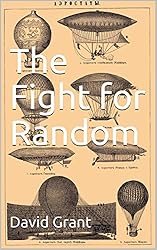 Canadian scientist and environmentalist David Suzuki has given up on the electoral system and proposes to replace it with a sortition-based system. Some excerpts from an interview with the National Observer:
Canadian scientist and environmentalist David Suzuki has given up on the electoral system and proposes to replace it with a sortition-based system. Some excerpts from an interview with the National Observer:
Q: Trudeau’s called the pipelines a “trade off” for the national carbon plan. Earlier this month, he was in Nanaimo saying we can both build Kinder Morgan and hit the Paris targets.
DS: That’s such a lot of bullshit! this is just political doublespeak: ‘We’ve got to keep burning more oil, more fossil fuels, in order to meet our reduction targets.’ What are you talking about? That’s such a crock of shit!
Q: So how can citizens hold our democratic leaders accountable?
DS: I was asked to give a talk to the Senate last year on the 150th anniversary of Canada. What I said is, ‘We elect people to run government, but their problem is they only look to the next election.’ They can’t look down and say, ‘Jesus, we have to spend $50 billion a year for the next fifteen years to deal with climate change,’ because they know someone else will take credit for it. They won’t be in office then. So that kind of view is not in their thinking.
So I said, ‘You guys are the Senate. You’re not elected. You’re appointed for life! You’re the ones to think of sober second thought, and think in terms of one generation, two generations from now. You’re the guys who should be doing that.’
They didn’t do a goddamn thing. But I really think that would be a huge opportunity, if we’ve got that bicameral system.
Continue reading
Filed under: Academia, Elections, Juries, Press, Sortition | 4 Comments »



 This past March, a deep-dive workshop on Citizens Juries, Citizens Assemblies, and sortition was put on by members of
This past March, a deep-dive workshop on Citizens Juries, Citizens Assemblies, and sortition was put on by members of 
 Mark Zuckerberg was hauled in front of Congress to answer for the “Cambridge Analytica scandal”. In the hearing he remorsefully promised that his top priority is now “making sure no one interferes in the various 2018 elections around the world”.
Mark Zuckerberg was hauled in front of Congress to answer for the “Cambridge Analytica scandal”. In the hearing he remorsefully promised that his top priority is now “making sure no one interferes in the various 2018 elections around the world”. In four screenplays, a short stage play, a long essay, a novella and a novel I consider the pros and cons of using sortition (random selection) to ensure that policy-making bodies accurately represent the people they serve.
In four screenplays, a short stage play, a long essay, a novella and a novel I consider the pros and cons of using sortition (random selection) to ensure that policy-making bodies accurately represent the people they serve.